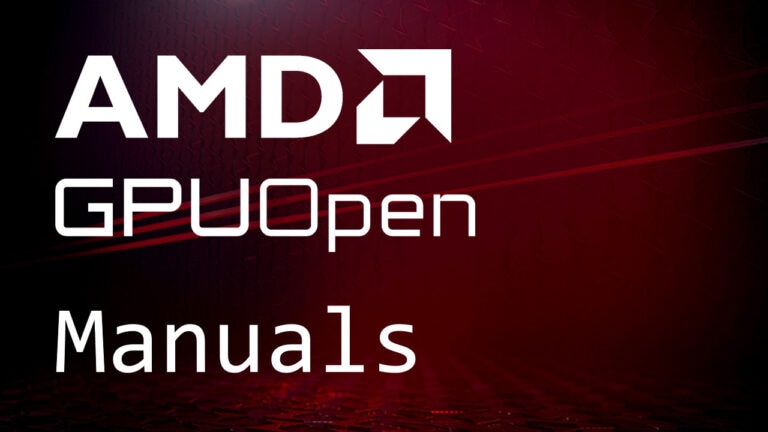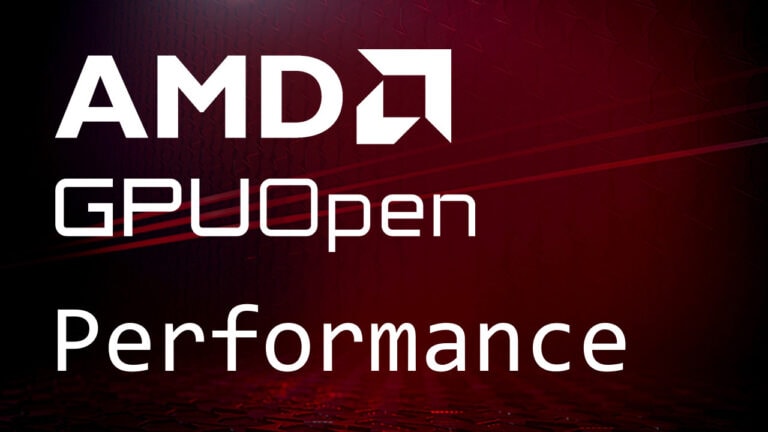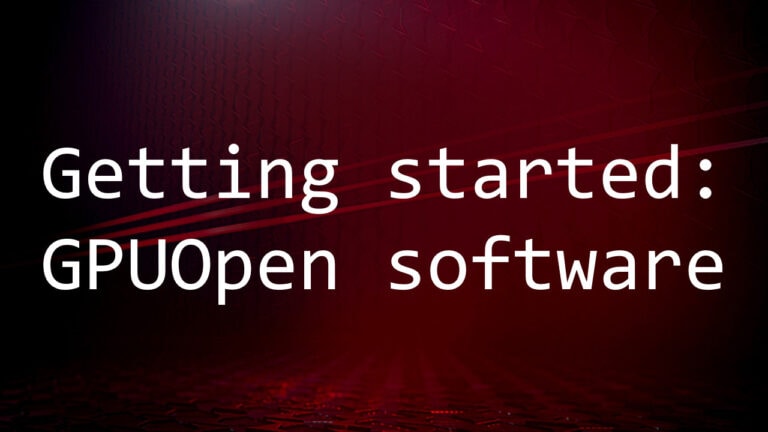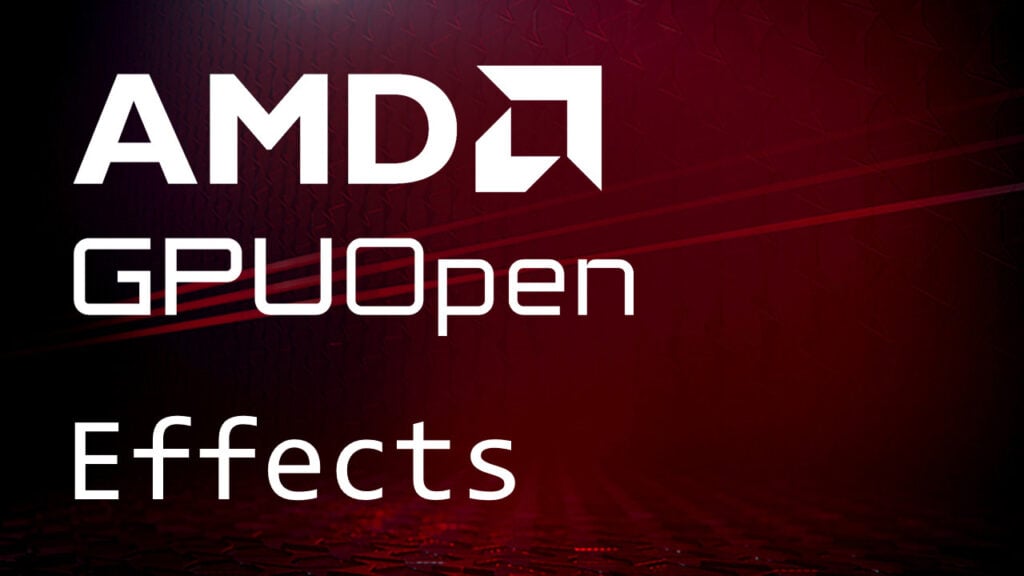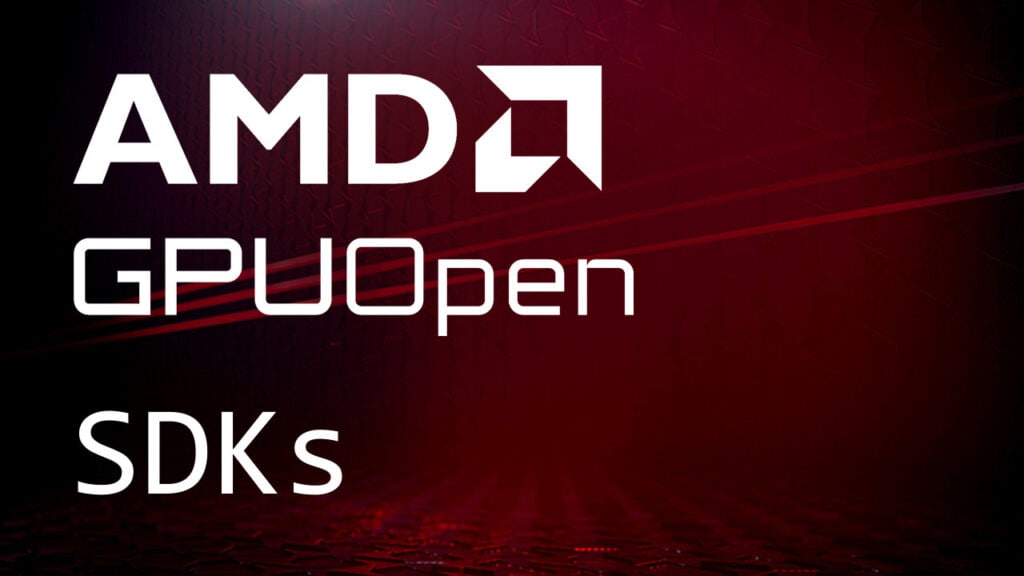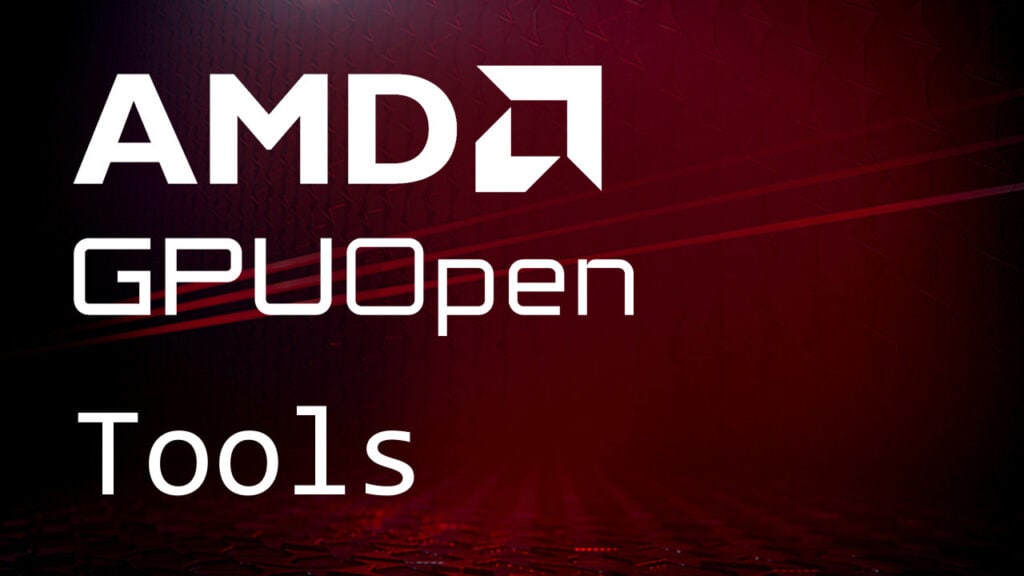GPUAutoTuning
This document describes how to control GPU Auto Tuning.
Command Prompts
| Command Prompt | Description |
|---|---|
| 1 | Check GPU Tuning is at factory status. |
| 2 | Restore the given GPU Tuning to factory status. |
| 3 | Show GPU auto tuning support. |
| 4 | Show current GPU status. |
| 5 | Start Undervolt GPU tuning. |
| 6 | Start Overclock GPU tuning. |
| 7 | Start Overclock VRAM tuning |
| M/m | Show this menu. |
| Q/q | Quit. |
Sample Path
/Samples/C/GPUTuning/GPUAutoTuning
Code
//
// Copyright (c) 2021 - 2025 Advanced Micro Devices, Inc. All rights reserved.
//
//-------------------------------------------------------------------------------------------------
#include "SDK/ADLXHelper/Windows/C/ADLXHelper.h"
#include "SDK/Include/IGPUAutoTuning.h"
#include "SDK/Include/IGPUTuning.h"
// ADLX Event Listener
static HANDLE g_ADLXEvent = NULL;
// Main menu
void MainMenu();
// Menu action control
void MenuControl(IADLXGPUTuningServices* gpuTuningService, IADLXGPUList* gpus);
// Wait for exit with error message
int WaitAndExit(const char* msg, const int retCode, IADLXGPUTuningServices* gpuTuningService, IADLXGPUList* gpus);
// Check GPU Tuning is at factory status
void CheckGPUTuningIsAtFactoryStatus(IADLXGPUTuningServices* gpuTuningService, IADLXGPUList* gpus);
// Restore the given GPU Tuning to factory status.
void RestoreGPUTuningToFactoryStatus(IADLXGPUTuningServices* gpuTuningService, IADLXGPUList* gpus);
// Show GPU auto tuning support
void ShowGPUAutoTuningSupport(IADLXGPUTuningServices* gpuTuningService, IADLXGPUList* gpus);
// Show current GPU status
void ShowCurrentGPUStatus(IADLXGPUTuningServices* gpuTuningService, IADLXGPUList* gpus);
// Derive from IADLXGPUAutoTuningCompleteListener
adlx_bool ADLX_STD_CALL onGPUAutoTuningCompleteEvents(IADLXGPUAutoTuningCompleteListener* pGPUAutoTuningCompleteListener,
IADLXGPUAutoTuningCompleteEvent* pGPUAutoTuningCompleteEvents);
// Start GPU auto tuning
void StartGPUAutoTuning(IADLXGPUTuningServices* gpuTuningService, IADLXGPUList* gpus, int num);
static IADLXGPUAutoTuningCompleteListenerVtbl vtable = { &onGPUAutoTuningCompleteEvents };
static IADLXGPUAutoTuningCompleteListener completeListener = { &vtable };
int main()
{
ADLX_RESULT res = ADLX_FAIL ;
// Initialize ADLX
res = ADLXHelper_Initialize();
if (ADLX_SUCCEEDED (res))
{
// Create event
g_ADLXEvent = CreateEvent(NULL, TRUE, FALSE, TEXT("ADLXEvent"));
// Get system services
IADLXSystem* sys = ADLXHelper_GetSystemServices();
IADLXGPUTuningServices* gpuTuningService = NULL;
IADLXGPUList* gpus = NULL;
res = sys->pVtbl->GetGPUTuningServices(sys, &gpuTuningService);
if (ADLX_FAILED (res))
return WaitAndExit("\\tGet GPU tuning services failed", 0, gpuTuningService, gpus);
res = sys->pVtbl->GetGPUs(sys, &gpus);
if (ADLX_FAILED (res))
return WaitAndExit("\\tGet GPU list failed", 0, gpuTuningService, gpus);
// Show a menu with options to chose from
MainMenu();
// Get the choice and interpet it
MenuControl(gpuTuningService, gpus);
// Free
if (gpus != NULL)
{
gpus->pVtbl->Release(gpus);
gpus = NULL;
}
if (gpuTuningService != NULL)
{
gpuTuningService->pVtbl->Release(gpuTuningService);
gpuTuningService = NULL;
}
}
else
{
printf("\\tg_ADLXHelp initialize failed\\n");
system("pause");
return 0;
}
// Destroy ADLX
res = ADLXHelper_Terminate();
printf("Destroy ADLX res: %d\\n", res);
// Close event
if (g_ADLXEvent)
CloseHandle(g_ADLXEvent);
// Pause for user see the print out
system("pause");
return 0;
}
// main menu
void MainMenu()
{
printf("\\tChoose one from the following options\\n");
printf("\\t->Press 1 to check GPU Tuning is at factory status\\n");
printf("\\t->Press 2 to restore the given GPU Tuning to factory status\\n");
printf("\\t->Press 3 to show GPU auto tuning support\\n");
printf("\\t->Press 4 to show current GPU status\\n");
printf("\\t->Press 5 to start Undervolt GPU tuning\\n");
printf("\\t->Press 6 to start Overclock GPU tuning\\n");
printf("\\t->Press 7 to start Overclock VRAM tuning\\n");
printf("\\t->Press Q/q to quit\\n");
printf("\\t->Press M/m to show the options again\\n");
}
// menu action control
void MenuControl(IADLXGPUTuningServices* gpuTuningService, IADLXGPUList* gpus)
{
int num = 0;
while ((num = getchar()) != 'q' && num != 'Q')
{
switch (num)
{
// Check GPU Tuning is at factory status
case '1':
CheckGPUTuningIsAtFactoryStatus(gpuTuningService, gpus);
break;
// Restore the given GPU Tuning to factory status.
case '2':
RestoreGPUTuningToFactoryStatus(gpuTuningService, gpus);
break;
// Show GPU auto tuning support
case '3':
ShowGPUAutoTuningSupport(gpuTuningService, gpus);
break;
// Show current GPU status
case '4':
ShowCurrentGPUStatus(gpuTuningService, gpus);
break;
// Start Undervolt GPU tuning
case '5':
// Start Overclock GPU tuning
case '6':
// Start Overclock VRAM tuning
case '7':
StartGPUAutoTuning(gpuTuningService, gpus, num - 5);
break;
// Show options again
case 'm':
case 'M':
MainMenu();
break;
default:
break;
}
}
}
// Wait for exit with error message
int WaitAndExit(const char* msg, const int retCode, IADLXGPUTuningServices* gpuTuningService, IADLXGPUList* gpus)
{
// Printout the message and pause for user to see it then return the desired code
if (NULL != msg)
printf("%s\\n", msg);
if (gpus != NULL)
{
gpus->pVtbl->Release(gpus);
gpus = NULL;
}
if (gpuTuningService != NULL)
{
gpuTuningService->pVtbl->Release(gpuTuningService);
gpuTuningService = NULL;
}
// Destroy ADLX
ADLX_RESULT res = ADLXHelper_Terminate();
printf("Destroy ADLX res: %d\\n", res);
system("pause");
return retCode;
}
// Check GPU Tuning is at factory status
void CheckGPUTuningIsAtFactoryStatus(IADLXGPUTuningServices* gpuTuningService, IADLXGPUList* gpus)
{
IADLXGPU* oneGPU = NULL;
for (adlx_uint crt = gpus->pVtbl->Begin(gpus); crt != gpus->pVtbl->End(gpus); ++crt)
{
ADLX_RESULT res = gpus->pVtbl->At_GPUList(gpus, crt, &oneGPU);
if (ADLX_SUCCEEDED (res))
{
adlx_bool isFactory = false;
res = gpuTuningService->pVtbl->IsAtFactory(gpuTuningService, oneGPU, &isFactory);
if (ADLX_SUCCEEDED (res))
{
printf("\\tThe %dth GPU is at factory status: %d\\n", crt, isFactory);
}
else
{
printf("\\tCheck the %dth GPU Tuning is at factory status failed\\n", crt);
}
}
else
{
printf("\\tGet %dth GPU failed\\n", crt);
}
if (oneGPU != NULL)
{
oneGPU->pVtbl->Release(oneGPU);
oneGPU = NULL;
}
}
}
// Restore the given GPU Tuning to factory status.
void RestoreGPUTuningToFactoryStatus(IADLXGPUTuningServices* gpuTuningService, IADLXGPUList* gpus)
{
IADLXGPU* oneGPU = NULL;
for (adlx_uint crt = gpus->pVtbl->Begin(gpus); crt != gpus->pVtbl->End(gpus); ++crt)
{
ADLX_RESULT res = gpus->pVtbl->At_GPUList(gpus, crt, &oneGPU);
if (ADLX_SUCCEEDED (res))
{
adlx_bool isFactory = false;
res = gpuTuningService->pVtbl->ResetToFactory(gpuTuningService, oneGPU);
if (ADLX_FAILED (res))
printf("\\tReset the %dth GPU Tuning to factory status failed\\n", crt);
else
printf("\\tReset the %dth GPU Tuning to factory status successfully\\n", crt);
}
else
{
printf("\\tGet %dth GPU failed\\n", crt);
}
if (oneGPU != NULL)
{
oneGPU->pVtbl->Release(oneGPU);
oneGPU = NULL;
}
}
}
// Show GPU auto tuning support
void ShowGPUAutoTuningSupport(IADLXGPUTuningServices* gpuTuningService, IADLXGPUList* gpus)
{
IADLXGPU* oneGPU = NULL;
IADLXInterface* autoTuni.gifc = NULL;
IADLXGPUAutoTuning* autoTuning = NULL;
for (adlx_uint crt = gpus->pVtbl->Begin(gpus); crt != gpus->pVtbl->End(gpus); ++crt)
{
ADLX_RESULT res = gpus->pVtbl->At_GPUList(gpus, crt, &oneGPU);
if (ADLX_SUCCEEDED (res))
{
adlx_bool supported = false;
res = gpuTuningService->pVtbl->IsSupportedAutoTuning(gpuTuningService, oneGPU, &supported);
if (ADLX_FAILED (res) || supported == false)
{
printf("\\tThe %dth GPU doesn't supported auto tuning\\n", crt);
}
else
{
res = gpuTuningService->pVtbl->GetAutoTuning(gpuTuningService, oneGPU, &autoTuni.gifc);
if (ADLX_FAILED (res) || autoTuni.gifc == NULL)
{
printf("\\tGet auto tuning of %dth GPU failed\\n", crt);
}
else
{
res = autoTuni.gifc->pVtbl->QueryInterface(autoTuni.gifc, IID_IADLXGPUAutoTuning(), (void**)(&autoTuning));
if (ADLX_SUCCEEDED (res) && autoTuning)
{
supported = false;
res = autoTuning->pVtbl->IsSupportedUndervoltGPU(autoTuning, &supported);
printf("\\tIs the %dth GPU supported undervolt: %d\\n", crt, supported);
supported = false;
res = autoTuning->pVtbl->IsSupportedOverclockGPU(autoTuning, &supported);
printf("\\tIs the %dth GPU supported overclock: %d\\n", crt, supported);
supported = false;
res = autoTuning->pVtbl->IsSupportedOverclockVRAM(autoTuning, &supported);
printf("\\tIs the %dth GPU supported overclock VRAM: %d\\n", crt, supported);
}
if (autoTuning != NULL)
{
autoTuning->pVtbl->Release(autoTuning);
autoTuning = NULL;
}
}
if (autoTuni.gifc != NULL)
{
autoTuni.gifc->pVtbl->Release(autoTuni.gifc);
autoTuni.gifc = NULL;
}
}
}
else
{
printf("\\tGet %dth GPU failed\\n", crt);
}
if (oneGPU != NULL)
{
oneGPU->pVtbl->Release(oneGPU);
oneGPU = NULL;
}
}
}
// Show current GPU status
void ShowCurrentGPUStatus(IADLXGPUTuningServices* gpuTuningService, IADLXGPUList* gpus)
{
IADLXGPU* oneGPU;
IADLXInterface* autoTuni.gifc = NULL;
IADLXGPUAutoTuning* autoTuning = NULL;
for (adlx_uint crt = gpus->pVtbl->Begin(gpus); crt != gpus->pVtbl->End(gpus); ++crt)
{
ADLX_RESULT res = gpus->pVtbl->At_GPUList(gpus, crt, &oneGPU);
if (ADLX_SUCCEEDED (res))
{
adlx_bool supported = false;
res = gpuTuningService->pVtbl->IsSupportedAutoTuning(gpuTuningService, oneGPU, &supported);
if (ADLX_FAILED (res) || supported == false)
{
printf("\\tThe %dth GPU doesn't supported auto tuning\\n", crt);
}
else
{
res = gpuTuningService->pVtbl->GetAutoTuning(gpuTuningService, oneGPU, &autoTuni.gifc);
if (ADLX_FAILED (res) || autoTuni.gifc == NULL)
{
printf("\\tGet auto tuning of %dth GPU failed\\n", crt);
}
else
{
res = autoTuni.gifc->pVtbl->QueryInterface(autoTuni.gifc, IID_IADLXGPUAutoTuning(), (void**)(&autoTuning));
adlx_bool applied = false;
if (ADLX_SUCCEEDED (res) && autoTuning)
{
applied = false;
res = autoTuning->pVtbl->IsCurrentUndervoltGPU(autoTuning, &applied);
printf("\\tIs the %dth GPU undervolt applied: %d\\n", crt, applied);
applied = false;
res = autoTuning->pVtbl->IsCurrentOverclockGPU(autoTuning, &applied);
printf("\\tIs the %dth GPU overclock applied: %d\\n", crt, applied);
applied = false;
res = autoTuning->pVtbl->IsCurrentOverclockVRAM(autoTuning, &applied);
printf("\\tIs the %dth GPU overclock VRAM applied: %d\\n", crt, applied);
}
if (autoTuning != NULL)
{
autoTuning->pVtbl->Release(autoTuning);
autoTuning = NULL;
}
}
if (autoTuni.gifc != NULL)
{
autoTuni.gifc->pVtbl->Release(autoTuni.gifc);
autoTuni.gifc = NULL;
}
}
}
else
{
printf("\\tGet %dth GPU failed\\n", crt);
}
if (oneGPU != NULL)
{
oneGPU->pVtbl->Release(oneGPU);
oneGPU = NULL;
}
}
}
adlx_bool ADLX_STD_CALL onGPUAutoTuningCompleteEvents(IADLXGPUAutoTuningCompleteListener* pGPUAutoTuningCompleteListener,
IADLXGPUAutoTuningCompleteEvent* pGPUAutoTuningCompleteEvent)
{
adlx_bool change = false;
change = pGPUAutoTuningCompleteEvent->pVtbl->IsOverclockGPUCompleted(pGPUAutoTuningCompleteEvent);
printf("\\tIs overclock GPU Completed: %d\\n", change);
change = pGPUAutoTuningCompleteEvent->pVtbl->IsUndervoltGPUCompleted(pGPUAutoTuningCompleteEvent);
printf("\\tIs undervolt GPU Completed: %d\\n", change);
change = pGPUAutoTuningCompleteEvent->pVtbl->IsOverclockVRAMCompleted(pGPUAutoTuningCompleteEvent);
printf("\\tIs overclock VRAM Completed: %d\\n", change);
SetEvent(g_ADLXEvent);
return true;
};
void StartGPUAutoTuning(IADLXGPUTuningServices* gpuTuningService, IADLXGPUList* gpus, int num)
{
IADLXGPU* oneGPU = NULL;
// Set the first GPU auto tuning
ADLX_RESULT res = gpus->pVtbl->At_GPUList(gpus, 0, &oneGPU);
if (ADLX_SUCCEEDED (res))
{
adlx_bool supported = false;
res = gpuTuningService->pVtbl->IsSupportedAutoTuning(gpuTuningService, oneGPU, &supported);
if (ADLX_FAILED (res) || supported == false)
{
printf("\\tThe GPU doesn't supported auto tuning\\n");
}
else
{
IADLXInterface* autoTuni.gifc = NULL;
res = gpuTuningService->pVtbl->GetAutoTuning(gpuTuningService, oneGPU, &autoTuni.gifc);
if (ADLX_FAILED (res) || autoTuni.gifc == NULL)
{
printf("\\tGet auto tuning of GPU failed\\n");
}
else
{
IADLXGPUAutoTuning* autoTuning = NULL;
res = autoTuni.gifc->pVtbl->QueryInterface(autoTuni.gifc, IID_IADLXGPUAutoTuning(), (void**)(&autoTuning));
if (ADLX_SUCCEEDED (res) && autoTuning)
{
switch (num)
{
case '0':
res = autoTuning->pVtbl->IsSupportedUndervoltGPU(autoTuning, &supported);
if (ADLX_SUCCEEDED (res) && supported)
{
res = autoTuning->pVtbl->StartUndervoltGPU(autoTuning, &completeListener);
WaitForSingleObject(g_ADLXEvent, 1000);
ResetEvent(g_ADLXEvent);
if (ADLX_SUCCEEDED (res))
printf("\\tStart undervolt GPU successfully\\n");
else
printf("\\tStart undervolt GPU failed\\n");
}
else
{
printf("\\tUndervolt GPU is not supported\\n");
}
break;
case '1':
res = autoTuning->pVtbl->IsSupportedOverclockGPU(autoTuning, &supported);
if (ADLX_SUCCEEDED (res) && supported)
{
res = autoTuning->pVtbl->StartOverclockGPU(autoTuning, &completeListener);
WaitForSingleObject(g_ADLXEvent, 1000);
ResetEvent(g_ADLXEvent);
if (ADLX_SUCCEEDED (res))
printf("\\tStart overclock GPU successfully\\n");
else
printf("\\tStart overclock GPU failed\\n");
}
else
{
printf("\\tOverclock GPU is not supported\\n");
}
break;
case '2':
res = autoTuning->pVtbl->IsSupportedOverclockVRAM(autoTuning, &supported);
if (ADLX_SUCCEEDED (res) && supported)
{
res = autoTuning->pVtbl->StartOverclockVRAM(autoTuning, &completeListener);
WaitForSingleObject(g_ADLXEvent, 1000);
ResetEvent(g_ADLXEvent);
if (ADLX_SUCCEEDED (res))
printf("\\tStart overclock VRAM successfully\\n");
else
printf("\\tStart overclock VRAM failed\\n");
}
else
{
printf("\\tOverclock VRAM is not supported\\n");
}
break;
default:
break;
}
}
if (autoTuning != NULL)
{
autoTuning->pVtbl->Release(autoTuning);
autoTuning = NULL;
}
}
if (autoTuni.gifc != NULL)
{
autoTuni.gifc->pVtbl->Release(autoTuni.gifc);
autoTuni.gifc = NULL;
}
}
}
else
{
printf("\\tGet GPU failed\\n");
}
if (oneGPU != NULL)
{
oneGPU->pVtbl->Release(oneGPU);
oneGPU = NULL;
}
}





